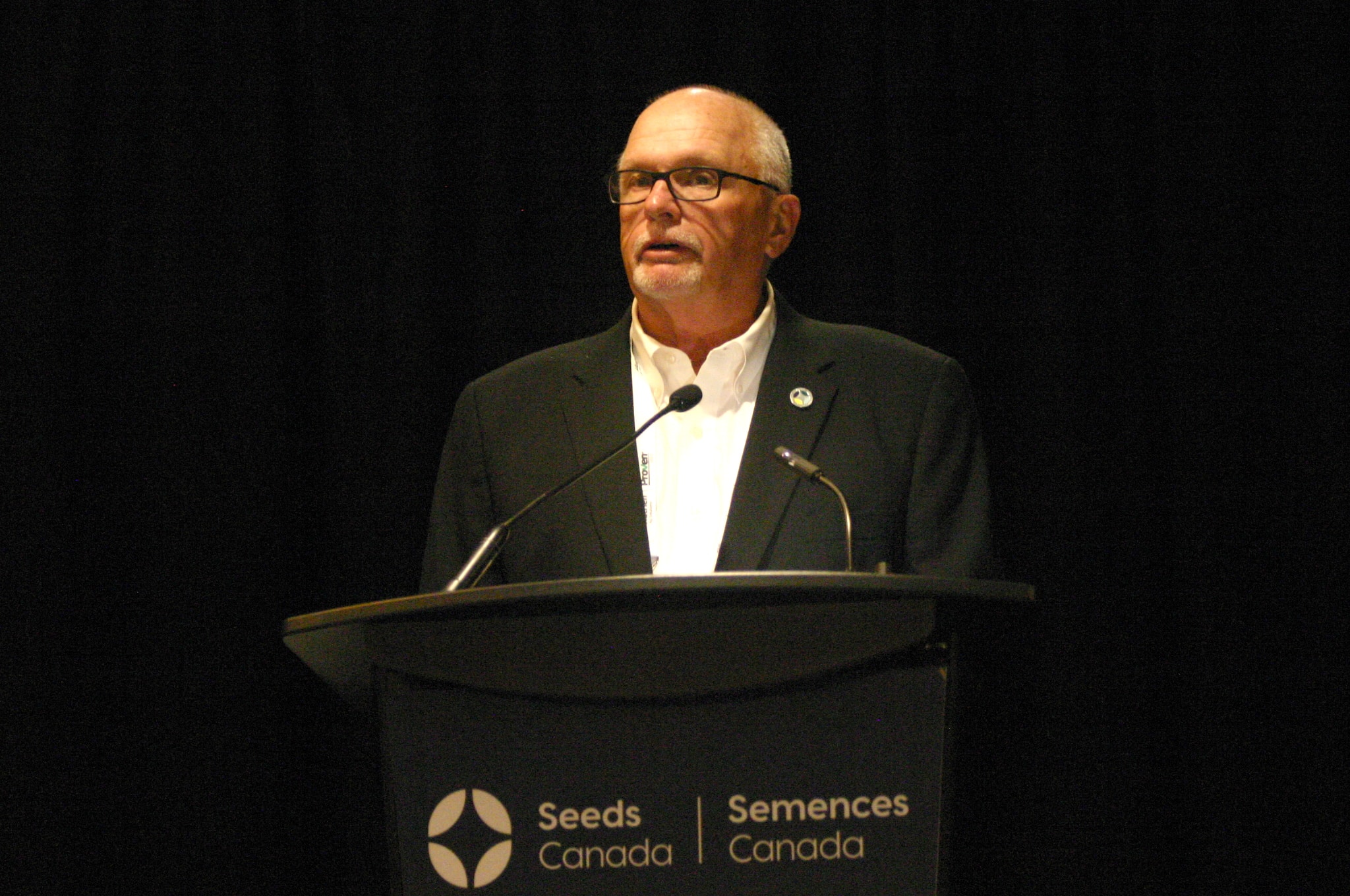The following piece is from our sister publication, Germination.
Now that Seeds Canada has gone through a successful amalgamation, new challenges lie ahead — a big one being growth and encouraging new members to join and get even more support from the broader value chain to ensure the Seed Regulatory Modernization (SRM) process comes to a conclusion that benefits everyone.
That was a big takeaway from this morning’s opening session of the Seeds Canada annual meeting in Winnipeg. During her financial report, Seeds Canada Finance Director Reta Byvelds said membership is slightly below what was projected in the amalgamation plan.
According to Byvelds, 94 per cent of members in Seeds Canada’s legacy organizations came on board, with some additional ones joining. At the same time, some former seed analyst stakeholders have retired, leaving membership numbers a bit short of what was projected when the organization formed.
While the organization is holding its own in terms of membership, the challenge will be to hit growth numbers from original amalgamation plan, she said.
In his opening talk, Executive Director Barry Senft said a major priority moving ahead is to communicate the value of membership to the wider value chain, and build on recent initiatives like Seed Summit 2022, which saw a variety of value chain organizations partner with Seeds Canada to hold the event, which laid out of a vision for Seed Regulatory Modernization and attracted almost 800 participants.
“We had a balanced cross section of stakeholder groups take part. The seed and ag sectors rarely come together in this way to discuss issues. …We have established Seeds Canada as a critical source for seed information for [stakeholders]. We’ve developed solid relationships with policymakers and key decisions makers,” Senft said.
“Our customers and competitors have modernized, so it is very much time for the seeds regulations to be modernized as well. The broader value chain needed to be involved in that, and it was a huge success.”
Broader Value Chain Participation Appreciated
In her remarks opening a session on SRM, Canadian Food Inspection Agency Vice-President of Policy and Programs Sylvie Lapointe said broad value chain participation has been hugely valuable in the SRM process.
“We are open for substantial change, including examining the role of government in the regulation of seed. Hence our commitment to a full-scale review. The SRM initiative is designed to hear from all seed stakeholders. We have a process in place that will allow us to have balanced input from affected sectors of the seed system,” she said.
“We have been very fortunate that so many stakeholders have volunteered to be part of this process. We have had over 140 dedicated volunteers so far. We have heard from many stakeholders across sectors that they think SRM is going very well and that they appreciate the early engagement of the full value chain. In addition to this process, where the seed sector is leading the discussion, we have had several points where there is a broad-based public consultation.”
This has included CFIA’s consultation process in which all stakeholders will have the opportunity to provide input and affect the outcome of the regulatory proposals put forward.
She noted Seeds Canada’s Roy Van Wyk led the SRM working group to discuss high level principles and objectives for the seed regulatory system. Seeds Canada’s subsequent report will feed into the next phase of SRM work, where the working group will start to align task team recommendations with the working group’s “Common Ground” vision and develop its own recommendations to the CFIA.
This input will feed into a fulsome SRM policy paper that will be brought to affected stakeholders and Canadians for input to public consultation in the winter of 2023.
Related Articles
As Seeds Canada Meets, the World is Taking Notice
Seed Summit 2022 Offers Key Chance to Determine Seed Sector Future





